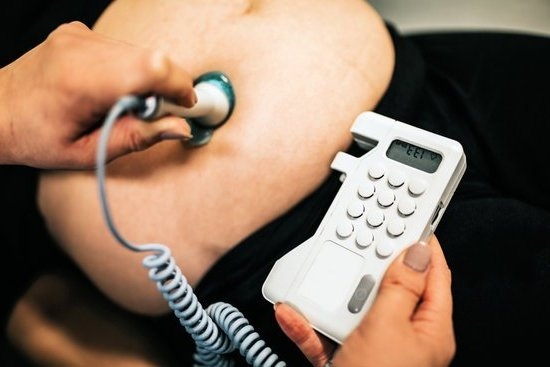Are you eagerly awaiting the news of a positive pregnancy test? Many women wonder how long it takes for a pregnancy test to show a positive result. Understanding the intricacies of pregnancy tests, including when and how they work, is crucial in managing expectations and knowing what to look out for. In this article, we will delve into the details of pregnancy testing, from the science behind it to the timing of testing and factors that can affect its accuracy.
Pregnancy testing can be an overwhelming experience for many women, especially those who are trying to conceive or suspect they may be pregnant. With the abundance of information available, it’s important to have a comprehensive understanding of how these tests work and when to take them for accurate results. Additionally, being aware of early signs of pregnancy and factors that can affect the accuracy of these tests is essential for anyone considering taking a pregnancy test.
In this article, we will explore the different types of pregnancy tests available on the market, as well as provide insight into which one may be right for you. And most importantly, we will address the burning question: how long does it take for a positive pregnancy test?
If you’re embarking on this journey or are simply curious about how pregnancy tests function, read on to gain valuable insight into understanding the waiting game and navigating next steps after receiving a positive result.
How Pregnancy Tests Work
When a woman becomes pregnant, her body starts producing a hormone called human chorionic gonadotropin (hCG). This hormone is what pregnancy tests are designed to detect. Most over-the-counter pregnancy tests are urine-based and work by detecting the presence of hCG in the urine. When a woman uses a pregnancy test, the hCG in her urine will bind to certain antibodies on the test strip, causing a reaction that produces a positive or negative result.
The sensitivity of a pregnancy test determines how early it can detect hCG in a woman’s body. Some tests are able to detect hCG levels as low as 25mIU/ml, while others may have a higher threshold for detection. This is why some tests claim they can provide accurate results as early as 6 days before a missed period, while others recommend waiting until after a missed period to test for pregnancy.
The accuracy of a pregnancy test also depends on how it is used. It is important to follow the instructions carefully and use the first urine of the day for testing, as it generally contains the highest concentration of hCG.
Taking a home pregnancy test too early or too late can affect its accuracy. Additionally, not all pregnancies progress at the same rate, so if an early test result is negative but pregnancy symptoms persist, it may be worthwhile to take another test after a few days.
| Time Frame | Likelihood of Accurate Result |
|---|---|
| 6 days before missed period | Likely not very accurate |
| Day of missed period | Likely more accurate |
| 1 week after missed period | Likely very accurate |
The Timing of Testing
When it comes to taking a pregnancy test, timing is crucial. Many women wonder how long does it take for a positive pregnancy test to show up after conception. In most cases, it is recommended to wait at least one week after a missed period to take a pregnancy test for the most accurate results. However, some tests claim to be able to detect pregnancy even before a missed period.
The timing of testing also depends on the type of pregnancy test being used. Some tests are more sensitive and can detect lower levels of hCG (human chorionic gonadotropin), the hormone produced during pregnancy, earlier than others. For example, an early result pregnancy test may be able to provide accurate results as soon as 6 days before a missed period, while other tests may require you to wait until the day of your missed period or later.
It’s important for women to understand that hCG levels vary from woman to woman and can also depend on factors such as the time of implantation and individual fertility cycles. Additionally, certain medications or medical conditions can affect hCG levels, potentially impacting the accuracy of the results.
Therefore, it is essential for women to carefully read and follow the instructions provided with each pregnancy test and consult with a healthcare professional if there are any concerns about when to take the test.
| How Long Does It Take for a Positive Pregnancy Test? | Recommended Timeframe |
|---|---|
| After Missed Period | At least one week |
| Early Result Pregnancy Test | As soon as 6 days before missed period |
Early Signs of Pregnancy
When trying to conceive, many women eagerly anticipate the early signs of pregnancy. While a missed period is often the first indicator, there are several other signs to look out for before taking a pregnancy test. It’s important to keep in mind that these symptoms can vary from woman to woman and not all women will experience the same signs.
Here are some common early signs of pregnancy to look out for:
- Fatigue and tiredness
- Nausea or morning sickness
- Tender or swollen breasts
- Changes in appetite
- Frequent urination
- Mood swings
It’s important to note that these symptoms can also be attributed to other factors, such as stress or illness. However, if you notice any of these signs and suspect you may be pregnant, it may be time to consider taking a pregnancy test.
Once these early signs start showing up, many women wonder how long it takes for a positive pregnancy test result. It’s important to understand that the timing of testing is crucial for accurate results. Different types of pregnancy tests have different levels of sensitivity, which can affect when they can accurately detect the hormone hCG (human chorionic gonadotropin) present in pregnant women’s urine.
Factors That Affect the Accuracy of Pregnancy Tests
When it comes to taking a pregnancy test, many factors can affect its accuracy. One of the most common questions women ask is, “How long does it take for a positive pregnancy test?” The answer to this question depends on several variables that can influence the results of the test.
First and foremost, the timing of when you take the pregnancy test can significantly impact its accuracy. For most accurate results, experts recommend waiting until at least one week after your missed period to take a home pregnancy test. Testing too early can lead to false negative results because there may not be enough hCG (human chorionic gonadotropin) in your urine for the test to detect.
Furthermore, the type of pregnancy test you use can also affect its accuracy. Some tests are more sensitive than others and can detect lower levels of hCG in your urine. Additionally, using expired or faulty pregnancy tests can also compromise the accuracy of the results. It’s crucial to carefully read and follow the instructions provided with the test to ensure its reliability.
Different Types of Pregnancy Tests
When it comes to pregnancy tests, there are various options available, each with its own advantages and limitations. It’s important to understand the different types of pregnancy tests and choose the one that is right for you based on your needs, preferences, and circumstances.
Over-the-Counter Urine Tests
Over-the-counter urine tests are the most common type of pregnancy test. These tests are easily accessible at pharmacies and can be used in the comfort of your own home. They work by detecting the presence of hCG (human chorionic gonadotropin) in your urine, which is a hormone produced during pregnancy. These tests typically provide results within a few minutes and are convenient and affordable for most women.
Blood Tests
Blood tests for pregnancy are another option and are typically performed at a healthcare provider’s office. There are two types of blood tests: qualitative hCG test and quantitative hCG test. The qualitative test simply determines whether hCG is present in the blood, while the quantitative test measures the exact amount of hCG present. Blood tests are more accurate than urine tests and can detect pregnancy earlier, but they are also more invasive and may take longer to receive results.
Digital Pregnancy Tests
Digital pregnancy tests are a newer option on the market. These tests work similarly to traditional urine tests but provide results in a digital format rather than relying on interpreting lines or symbols. Digital tests may be easier to read for some women and can offer more certainty about the results, but they tend to be more expensive than traditional urine tests.
Ultimately, when choosing a pregnancy test, consider factors such as cost, convenience, accuracy, and your personal preferences. It’s important to follow the instructions carefully for any type of test you choose in order to obtain accurate results. If you have any concerns or questions about choosing a pregnancy test, consult with your healthcare provider for guidance.
How Long Does It Take for a Positive Pregnancy Test
When a woman suspects she may be pregnant, the waiting game begins. It can be an anxious time as she wonders how long it will take for a positive pregnancy test to appear. Understanding the factors that influence when a positive pregnancy test will show up can help manage expectations during this anxious period.
Timing After Conception
After conception, it takes time for the body to produce enough hCG (human chorionic gonadotropin) – the pregnancy hormone – to be detectable in urine or blood. This hormone is what is tested for by pregnancy tests, and its levels increase rapidly in the early weeks of pregnancy. Once implantation occurs, it typically takes about 10 days for there to be enough hCG in the body for a home urine test to accurately detect pregnancy.
Factors Affecting Testing Time
The timing of when you can take a pregnancy test can also depend on factors such as the length of your menstrual cycle and when you ovulate. For many women, taking a pregnancy test around the time their period is due could give an accurate result. However, some women have irregular cycles or may not know exactly when they ovulated, which can affect when testing may show accurate results.
Recommendations for Testing
While some women may be eager to find out if they are pregnant as soon as possible, it’s typically recommended to wait until your period is late before testing. This reduces the chance of getting a false negative result due to testing too early.
In general, most home pregnancy tests claim to offer accurate results as early as the first day of a missed period. Additionally, following the instructions on the pregnancy test carefully and using it at the right time of day can help ensure accurate results.
What to Do After a Positive Pregnancy Test
After a positive pregnancy test, it is important to take certain steps and considerations to ensure the health and well-being of both the mother and the baby. Here are some things to do after receiving a positive result:
1. Confirm the pregnancy with a healthcare provider: It is essential to confirm the positive result with a healthcare professional. They can conduct further tests, such as a blood test or ultrasound, to confirm the pregnancy and provide important information about the next steps.
2. Start prenatal care: Once the pregnancy is confirmed, it is crucial to start prenatal care as soon as possible. Prenatal care involves regular check-ups with healthcare providers, proper nutrition, and assessment of any potential risk factors.
3. Make lifestyle adjustments: After receiving a positive pregnancy test, it is important for expectant mothers to make certain lifestyle adjustments for the health of the baby. This may include quitting smoking, avoiding alcohol and certain medications, eating a balanced diet, and getting regular exercise.
It’s crucial to keep in mind that every woman’s experience with a positive pregnancy test will be different, so seeking guidance from a healthcare provider is vital for personalized care and support during this important time in one’s life.
Conclusion
In conclusion, understanding the timing of when to take a pregnancy test is crucial in determining its accuracy. It is recommended to wait until after you have missed your period to take a test, as testing too early may result in a false negative.
However, some pregnancy tests claim to detect pregnancy even before a missed period, so it’s important to carefully read and follow the instructions. Additionally, knowing the factors that can affect the accuracy of a pregnancy test, such as medications or fertility treatments, can help individuals make informed decisions about when and how to take a test.
After taking a pregnancy test and receiving a positive result, it is important to seek medical support and begin considering next steps. This may involve scheduling an appointment with a healthcare provider for confirmation of the pregnancy and discussing prenatal care options. It’s also important to consider your emotional well-being during this time and seek support from friends, family, or support groups if needed.
Overall, understanding how long it takes for a positive pregnancy test relies on knowing when to take the test and being aware of factors that can affect its accuracy. By seeking medical support and considering next steps after receiving a positive result, individuals can begin their journey with confidence and reassurance.
Frequently Asked Questions
How Soon Will a Pregnancy Test Read Positive?
A pregnancy test can read positive as early as 10 days after conception, but for the most accurate result, it’s best to wait until after your missed period. Some tests can detect pregnancy even earlier, but there may be a higher risk of false negatives.
How Long Does It Take for hCG to Show Up in Urine?
It typically takes about 7-12 days after conception for hCG to show up in urine at levels high enough to be detected by a pregnancy test. For the most accurate results, it’s best to wait until after your missed period before taking the test.
How Can I Tell if Im Pregnant After 1 Week?
Most women won’t experience noticeable symptoms until at least 1-2 weeks after conception. However, some early signs of pregnancy can include implantation bleeding, cramping, breast tenderness, and nausea. Keep in mind that these symptoms can also be caused by other factors and may not necessarily indicate pregnancy.

Welcome to my fertility blog. This is a space where I will be sharing my experiences as I navigate through the world of fertility treatments, as well as provide information and resources about fertility and pregnancy.





